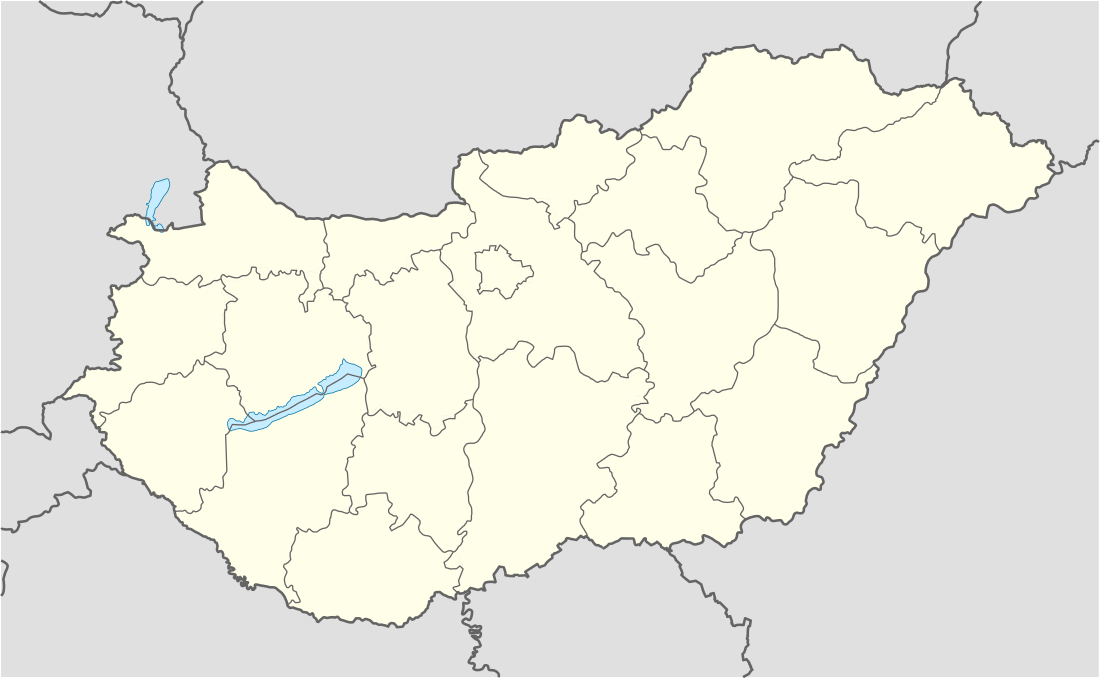1986–87 Országos Bajnokság I (men's water polo)
1986–87 Országos Bajnokság I (men's water polo) was the 81st water polo championship in Hungary. Fourteen teams played each other twice for the title.
| Season | 1986-87 |
|---|---|
| Champions | BVSC |
| European Cup | BVSC |
← 1985-86 1987-88 → | |
Final list
| # | Team | M | W | D | L | G+ | G- | P | Notes |
|---|---|---|---|---|---|---|---|---|---|
| 1. | BVSC | 26 | 19 | 3 | 4 | 268 | 219 | 41 | 1987-88 European Cup quarter final |
| 2. | Szolnoki Vízügy | 26 | 18 | 3 | 5 | 248 | 201 | 39 | |
| 3. | Bp. Spartacus | 26 | 17 | 2 | 7 | 249 | 216 | 36 | |
| 4. | Tungsram SC | 26 | 16 | 3 | 7 | 256 | 216 | 35 | |
| 5. | Szeged SC | 26 | 14 | 6 | 6 | 242 | 229 | 34 | |
| 6. | Vasas SC | 26 | 13 | 2 | 11 | 289 | 250 | 28 | |
| 7. | Eger SE | 26 | 11 | 5 | 10 | 232 | 245 | 27 | |
| 8. | Tatabányai Bányász | 26 | 11 | 5 | 10 | 261 | 253 | 27 | |
| 9. | Ferencvárosi TC | 26 | 11 | 4 | 11 | 270 | 257 | 26 | |
| 10. | Újpesti Dózsa | 26 | 11 | 2 | 13 | 254 | 244 | 24 | |
| 11. | Szentesi Vízmű | 26 | 8 | 3 | 15 | 252 | 286 | 19 | |
| 12. | Bp. Honvéd | 26 | 6 | 2 | 18 | 215 | 248 | 14 | |
| 13. | OSC | 26 | 6 | 1 | 19 | 221 | 267 | 13 | |
| 14. | Kecskeméti VSC | 26 | 0 | 1 | 25 | 198 | 324 | 1 |
* M: Matches W: Win D: Drawn L: Lost G+: Goals earned G-: Goals got P: Point
| 1986-87 OB I Champions |
|---|
| BVSC 3rd Title |
Season statistics
Sources
- Gyarmati Dezső: Aranykor (Hérodotosz Könyvkiadó és Értékesítő Bt., Budapest, 2002.)
- A magyar sport évkönyve 1987
gollark: It's less complex for everyone interacting with it, since they can just... use SQLite, which has bindings for everything, instead of "zimlib". And by "efficiency" do you mean "space efficiency" or "lookup efficiency"? Because, as I said, SQLite would probably only add a few bytes per directory entry row, which is not a significant increase.
gollark: SQLite's overhead is pretty low, and the majority of the filesize is from the binary blobs which would remain the same in each.
gollark: It's less complex for them as the code is already there and written with a nice API, and "less efficient" how? Slightly more space on headers?
gollark: You could easily store the directory entry bits as an SQLite table.
gollark: This is an excellent use case for SQLite, which would allow quick lookups in the metadata bit and not require coming up with a fiddly custom binary format.
This article is issued from Wikipedia. The text is licensed under Creative Commons - Attribution - Sharealike. Additional terms may apply for the media files.
